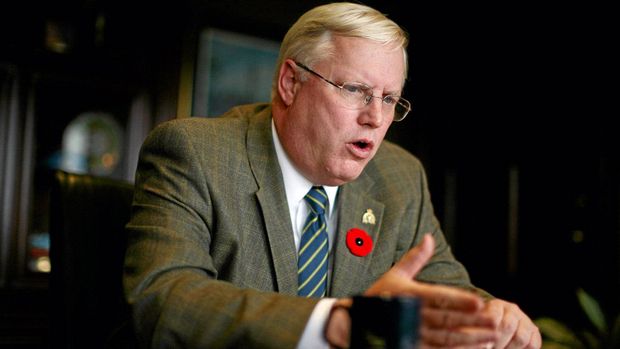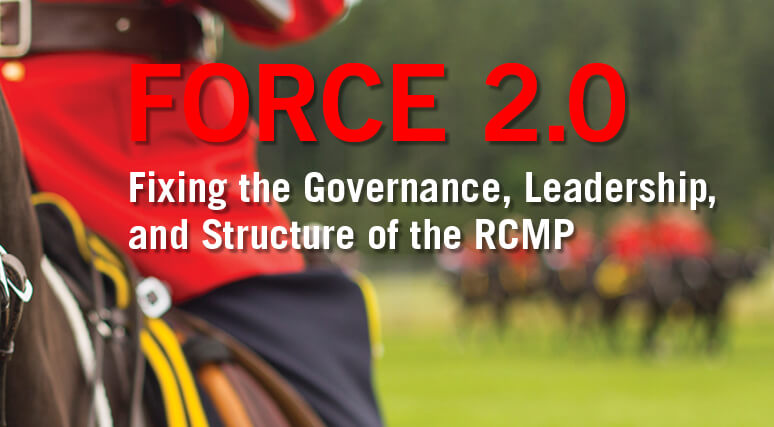Civilian Oversight and Unionization of the RCMP
December 31, 2018. RCMP: Civilian Oversight and Unionization take centre stage.
It has taken decades, however, it seems possible the changes announced for 2019 may assist this storied force to adopt the ideals first annunciated by Sir Robert Peel. While the imposition of civilian oversight and the unionization of the rank and file is only a first step in what will surely be a slow and painful process, it may be enough to break the rigid command and control structure that has stifled initiative and rewarded compliance.
In modern times, rank and file members have been caught between the demands of policing in the 21st century and an administrative structure with one foot firmly planted in the 19th. In the process of advocating for change, many promising careers were destroyed by bullying tactics used against members in general and sexual abuse against female members in particular. Such changes began in other city and municipal forces back in the ’60s, ’70s and ’80s.
For the RCMP, “These changes are coming in response to years of complaints that the force has a broken workplace culture, as well as repeated calls from outside inquiries for civilian oversight of management functions that are still under the purview of uniformed officers.”
“In addition, the RCMP could soon be unionized, which stands to transform labour relations in the coming months. And, many senior officers have recently retired or announced plans to leave the force, which will bring fresh blood into the upper ranks…” Ottawa to implement changes to the RCMP
As a small example of the atrophy infecting senior ranks, in 2010 I casually associated with a long-serving RCMP Superintendent during the Olympics, a man who logged over four decades of service. He and I began our careers around the same time (the early ’60s), he at the RCMP training centre in Regina, and I at the Vancouver Police Academy. Talking with this man at lunch or coffee about the issues facing the police today, provided a living example of an old service adage, “the member didn’t have forty-two years of police experience, he had one year of experience forty-two times.”
While the man granted permission for this 14-year retired Detective Sergeant to sit with him, the demeanour of rank displayed in his word and action was a visible as the buttons and braid adorning his immaculate uniform and peaked forage cap. There was no mistaking the void that existed between us in our experience as police officers was insurmountable. (1) Over my time at the Olympics I never observed another RCMP member sit with this man for coffee or lunch. While I do not hold him out as being typical of all those in senior ranks, the fact he still holds a position of immense and largely unchecked power in a modern day police force gives pause for concern.
I don’t think anyone doubts that making these changes will be difficult as many in the senior ranks, particularly those in Ottawa, will not willingly give up the privileges they hold. Over their years of defending the status quo, they have built formidable defences that will be difficult to breach . Several attempts have been made in recent years but in each instance, senior members have closed ranks to protect their own and the force from outsiders. This was no better demonstrated than with the appointment of William Elliot as the first civilian Commissioner of the RCMP.
. Several attempts have been made in recent years but in each instance, senior members have closed ranks to protect their own and the force from outsiders. This was no better demonstrated than with the appointment of William Elliot as the first civilian Commissioner of the RCMP.
Photo: Commissioner Elliot was under fire by the senior ranks from the moment he set foot in the office. Try as he may to bring about change, the force was eventually returned to a traditionalist, Robert W. Paulson, whose lack of action on critical issues of change was at the leading edge of the decisions made today. (This Background)
As the recommended changes are implemented, it is helpful that a moderately large city like Surrey, B.C. is taking steps to replace the RCMP with a local force. However, even that proposed change for Surrey will not be easy as there will be considerable pushback from both the senior ranks in RCMP in Surrey as well as in Ottawa where may will see the move as the thin edge of the wedge leading to the RCMP being entirely removed from large and moderately sized city and municipal policing.
I think most would agree the RCMP has the potential to provide a high-quality service at both the national level, and, as well, in small and remote communities across Canada. But, in order to do so, it will be necessary to break the old boy’s network that rigidly controls the force. Also, as is happening in Surrey, they need to move away from the large city and municipal service where they have such difficulty detaching themselves from Ottawa and to the cities they police.
One change that would help is to direct their oath of office back to the citizens they serve rather than to the force and Ottawa as currently exists as in the following:
“I will faithfully, diligently and impartially execute and perform the duties required of me as a member of the Royal Canadian Mounted Police, and will well and truly obey and perform all lawful orders and instructions that I receive…”
This oath is clearly directed inward toward the force, not outward toward the people they will be assigned to serve. There is no reference what-so-ever to the Peelian Principles of law enforcement as is the standard with regular City and Municipal forces. Much has been written on this subject and others as linked below.
It has been a long a difficult path for the rank and file members of the RCMP as they seek to find a voice in an organization where the top down, command and control structure limits the voice of workers. We wish you all the best in your fight for equality and recognition.
Harold McNeill
A Retired Municipal Police Officer
(I) At the time of my meeting with the Superintendent, I was 67 years of age and he a few years younger so we were very likely in training around the same time in the early 1960s. When I entered the service, all Municipal and City forces in BC were represented by a local Police Association, the BC Federation of Police Officers and the Canadian Police Officers Association.
The three levels of rank and file representation helped to initiate many positive changes to the police service that, up until the 1950s and 1960s faced many of the same challenges the RCMP face today. By the 1980s, the commissioned ranks in most large police departments formed their own associations.
As more woman began to enter the ranks in the 1980s they also met many of the same difficulties experienced by women as they entered the ranks of the RCMP over the past couple of decades. The big difference for women in municipal and city forces was having an association to represent them in their battles against rampant sexism and issues workplace equality. It was not a smooth path by any means, but through the 1980s and ’90s, significant progress was made in city and municipal forces.
Police Members and their Oath of Office This post provides a clear example of how an RCMP recruit, from the moment of swearing in, is directed toward serving the organization and the rank structure of the force rather than outer-directed towards of the citizens they will be assigned to serve. This may seem a trifling matter but it cuts to the core of the internal challenges faced by the RCMP.
The Case of the Missing 100 Officers in Surrey: “The RCMP is being buffeted by wave after wave of 21st-century demands being forced upon a 20th-century stultified organization.” Nowhere is this more evident than in the Surrey RCMP Detachment, its largest operational detachment in Canada.
Ottawa to implement changes to the RCMP In a report on workplace harassment, “the CRCC (Civilian Review and Complaints Commission) said the national police force still featured a “culture of dysfunction. In the view of the Commission, the RCMP lacks both the will and the capacity to make the changes necessary to address the problems that afflict its workplaces,” the report said. “Responsibility now lies with the federal government to effect substantive change by modernizing and civilianizing key aspects of the RCMP’s administrative management and oversight.”
Commissioner on the Wrong Track This link is provided as background information on how the RCMP functions in Ottawa and if, for no other purpose, to demonstrates how one former RCMP, Bob Paulson, was out of touch on Security and Defence issues.
Oversight of the Police and Security Services: This post provides the full background of the challenges faced by the RCMP in the last century when there was no oversight what-so-ever of their activities. The result was security agency going rogue. It was, indeed, a troubling time and cost the RCMP dearly. Unfortunately, in the 21st-century, the force has largely returned to the old ways of handling security matters (check the next linked article)
Conspiracy to Bomb the BC Legislature: The Grand Illusion. This post continues the discussion about whether oversight of police and security services is as important today as it was in the 1970s. After reading and watching over four-dozen media, video and web reports covering the ongoing trial of Nuttall and Korody, it was astounding to learn of the extremes to which the RCMP Security Service went in order to envelop the couple in a terrorist plot. It was as if we were back in the 1970s when security agencies could act with impunity (Oversight).
Entrapment December 19, 2018: In a unanimous decision released Wednesday morning, the Appeal Court sided with a B.C. Supreme Court judge who stayed proceedings in the terrorism trial of John Nuttall and Amanda Korody on the grounds that the police investigation was a “travesty of justice.”
(275)
Tags: RCMP Unionization, RCMP Civilian Oversight, Sir Robert Peel, Harold McNeill
Trackback from your site.

